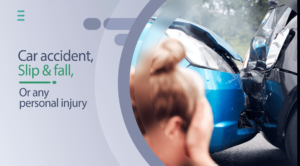Drivers that have purchased either of those 2 options enjoy coverage for injury expenses if the responsible motorist has no or limited insurance. Moreover, that guaranteed coverage comes from the option-holder’s own insurance company.
By the same token, the person that bought the policy to which one or both options have been attached, remains free from a certain worry. That worry could reflect any possible concerns about the assets of the responsible driver.
Special situations covered by underinsured motorist option
Any members of the option-holder’s family would have the cost of their injuries covered, if any one of them were to be injured, while walking across the street. That same provision would apply if the member of an option-holder’s family were hit by a motorist, while walking across the entrance to a driveway, or while walking on any surface that was adjacent to the roadway.
Any members of the option-holder’s family would have the costs for their injuries covered, if any one of them were to be injured while riding a bicycle. That promised coverage could be lost or reduced, if the bicycle rider had chosen to disobey the rules that apply to riders on bicycles, as per personal injury lawyer in Cayuga.
Condition linked to underinsured motorist option
The amount of coverage granted to the option-holder cannot be greater than the amount of money guaranteed to that same policyholder by the purchased liability coverage. Insurers added that condition because the cost for the option was well below the cost of a general liability policy.
In the past, some car owners had chosen to increase their coverage by purchasing the option, and buying only a minimum amount of liability coverage. Introduction of the condition that was linked to the option was supposed to put an end to that practice.
Conditions linked to uninsured motorist option
In some states, the uninsured motorist option can only be used in situations where the identity of the responsible driver has been determined.
If there is no settlement, the policyholder cannot sue the insurance company. Instead, the policyholder must submit the injury claim for arbitration.
What is the primary drawback to relying on the outcome from arbitration?
The decision reached by the arbitrators cannot be appealed. That provision differs from the guarantees that have been given to other insured drivers. That guarantee grants to each driver the freedom to appeal a decision that has been made by a judge or jury.
If that same decision were in favor of the uninsured motorist, then the policyholder would not get compensated for the losses that he or she had suffered, as a result of the injury-causing accident. Perhaps that fact explains the low price that insurance companies have placed on the uninsured motorist option.




